Home> Company News> Selecting the Right Casappa Hydraulic Pump for Your Application: Factors to Consider
- AddressNo.9088 SHAHEXI ROAD, NANSHAN DISTRICT,SHENZHEN,CHINA
- Factory AddressNo.9088 SHAHEXI ROAD, NANSHAN DISTRICT,SHENZHEN,CHINA
- Worktime9:00-18:00
- Phone(Working Time)0531-85064681
- Phone(Nonworking Time)0531-85064681
- Fax0531-85064681
Selecting the Right Casappa Hydraulic Pump for Your Application: Factors to Consider
NOVEMBER 02, 2022Introduction to Casappa Hydraulic Pump
Casappa Hydraulic Pump is a well-known brand in the hydraulic industry, offering a wide range of hydraulic solutions to various industries worldwide. The brand is known for its high-quality hydraulic pumps, which are durable, reliable, and efficient. In this section, we will provide an overview of Casappa Hydraulic Pump, discuss the applications of the pump, and highlight the benefits of using Casappa Hydraulic Pump.
Overview of Casappa Hydraulic Pump:
Casappa Hydraulic Pump is a global brand that offers a wide range of hydraulic pumps, motors, and valves for various applications. The company has over 60 years of experience in the hydraulic industry and is known for its high-quality products that meet international standards. Casappa Hydraulic Pump is available in different types and configurations, including gear pumps, fixed displacement vane pumps, and variable displacement vane pumps.
Applications of Casappa Hydraulic Pump:
Casappa Hydraulic Pump is suitable for various applications, including construction, agriculture, marine, and industrial machinery. The pump's high efficiency, durability, and reliability make it suitable for heavy-duty applications that require high-performance hydraulic solutions. Casappa Hydraulic Pump is used in hydraulic systems such as power steering, lifting equipment, and machine tools.
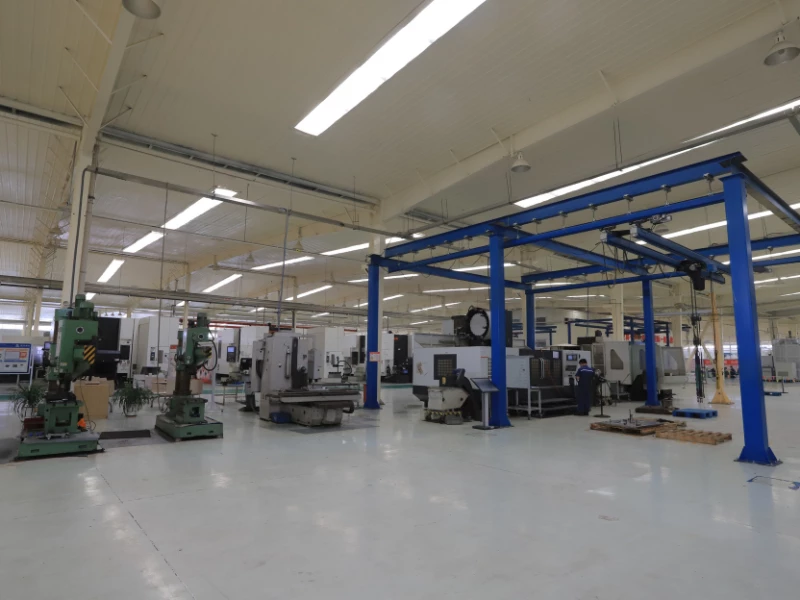
Benefits of using Casappa Hydraulic Pump:
-
High efficiency: Casappa Hydraulic Pump is known for its high efficiency, which reduces energy consumption and operating costs.
-
Durability: The pump's high-quality materials and advanced technology ensure that it can withstand harsh operating conditions and provide long service life.
-
Reliability: Casappa Hydraulic Pump's advanced technology and strict quality control standards ensure that the pump delivers consistent performance and reliability.
-
Versatility: Casappa Hydraulic Pump is available in different types and configurations, making it a versatile solution for various applications and industries.
In summary, Casappa Hydraulic Pump is a reputable brand that offers high-quality hydraulic solutions to various industries worldwide. The pump's high efficiency, durability, and reliability make it suitable for heavy-duty applications that require high-performance hydraulic solutions. The pump is available in different types and configurations, offering versatility and flexibility to suit specific application requirements.
Types of Casappa Hydraulic Pump
Casappa Hydraulic Pump is available in different types and configurations, including gear pumps, fixed displacement vane pumps, and variable displacement vane pumps. In this section, we will discuss each type of pump and highlight their advantages and disadvantages.
Gear Pump:
Gear pumps are the most common type of hydraulic pump used in various applications due to their simplicity, reliability, and affordability. Casappa Hydraulic Gear Pump is available in different configurations, including external gear pumps and internal gear pumps. External gear pumps have two gears that rotate together, while internal gear pumps have one gear inside the other. Gear pumps are suitable for low to medium-pressure applications and can handle a wide range of viscosities.
Advantages:
- Simple design
- Low cost
- Reliable performance
Disadvantages:
- Limited pressure range
- Limited flow rate range
- High noise level
Fixed Displacement Vane Pump:
Fixed displacement vane pumps are another type of hydraulic pump that is commonly used in various applications. Casappa Hydraulic Fixed Displacement Vane Pump consists of a rotor with vanes that slide in and out of slots in the rotor. The pump's displacement is fixed, meaning that the pump's output is proportional to the speed of the pump. Fixed displacement vane pumps are suitable for low to medium-pressure applications and can handle a wide range of viscosities.
Advantages:
- Low noise level
- High efficiency
- Compact design
Disadvantages:
- Fixed displacement
- Limited pressure range
- Limited flow rate range
Variable Displacement Vane Pump:
Variable displacement vane pumps are designed to vary their displacement, allowing for adjustable flow rates and pressure output. Casappa Hydraulic Variable Displacement Vane Pump uses a control mechanism to adjust the pump's displacement, allowing for precise control of the hydraulic system. Variable displacement vane pumps are suitable for high-pressure applications and can handle a wide range of viscosities.
Advantages:
- Adjustable displacement
- High efficiency
- Low noise level
Disadvantages:
- Higher cost
- More complex design
- Requires additional control mechanism
In summary, Casappa Hydraulic Pump is available in different types and configurations, including gear pumps, fixed displacement vane pumps, and variable displacement vane pumps. Each type of pump has its advantages and disadvantages, making it essential to consider specific application requirements when selecting a pump. Gear pumps are simple and reliable but have limited pressure and flow rate ranges. Fixed displacement vane pumps are efficient and low noise but have a fixed displacement. Variable displacement vane pumps are adjustable and high efficiency but require additional control mechanisms and are more expensive.
Factors to Consider When Selecting a Casappa Hydraulic Pump
When selecting a Casappa Hydraulic Pump, several factors need to be considered to ensure that the pump is suitable for the application and operating conditions. In this section, we will discuss the critical factors to consider when selecting a Casappa Hydraulic Pump.
- Flow Rate:
Flow rate is the amount of fluid that a hydraulic pump can deliver per unit of time, usually measured in liters per minute (LPM) or gallons per minute (GPM). The flow rate requirement depends on the specific application and the amount of hydraulic power required to operate the system. It is essential to consider the maximum and minimum flow rate requirements to select the appropriate pump.
- Operating Pressure:
Operating pressure is the maximum pressure that a hydraulic pump can generate to operate the system. The operating pressure requirement depends on the specific application and the amount of force required to perform the required tasks. It is essential to consider the maximum and minimum operating pressure requirements to select the appropriate pump.
- Mounting Style:
The mounting style refers to how the hydraulic pump is mounted in the hydraulic system. There are different mounting styles, including flange mounting, foot mounting, and through-shaft mounting. The mounting style requirement depends on the specific application and the available space and configuration.
- Efficiency:
Efficiency refers to how effectively the hydraulic pump converts mechanical power into hydraulic power. The efficiency requirement depends on the specific application and the operating conditions. It is essential to consider the pump's efficiency to ensure optimal performance and reduce energy consumption.
- Noise Level:
The noise level of a hydraulic pump is an essential factor to consider, especially in applications that require low noise levels. Some applications may have noise level regulations that must be met. It is essential to consider the pump's noise level to ensure compliance and prevent noise pollution.
- Maintenance Requirements:
The maintenance requirements of a hydraulic pump are essential to ensure reliable performance and long service life. Some pumps require regular maintenance, while others require minimal maintenance. It is essential to consider the pump's maintenance requirements to plan for maintenance schedules and ensure optimal performance.
In summary, when selecting a Casappa Hydraulic Pump, it is essential to consider factors such as flow rate, operating pressure, mounting style, efficiency, noise level, and maintenance requirements. Selecting the appropriate pump that meets the specific application requirements can ensure optimal performance, reliability, and long service life.

Casappa Hydraulic Pump Specifications
Casappa Hydraulic Pump is available in different sizes and configurations, each with specific technical details and performance specifications. In this section, we will discuss the technical details and performance specifications of Casappa Hydraulic Pump.
Technical details of Casappa Hydraulic Pump:
-
Materials: Casappa Hydraulic Pump is made of high-quality materials such as cast iron, aluminum, and steel, ensuring durability and reliability.
-
Mounting styles: Casappa Hydraulic Pump is available in different mounting styles, including flange mounting, foot mounting, and through-shaft mounting.
-
Shaft type: Casappa Hydraulic Pump has different shaft types, including keyed, splined, and tapered shafts, to accommodate various applications.
-
Rotation: Casappa Hydraulic Pump can rotate in different directions, including clockwise and counterclockwise, to suit specific application requirements.
Performance specifications:
-
Flow rate: Casappa Hydraulic Pump has different flow rates, ranging from a few liters per minute to over a hundred liters per minute, depending on the pump size and type.
-
Operating pressure: Casappa Hydraulic Pump has different operating pressures, ranging from a few hundred PSI to over 5000 PSI, depending on the pump size and type.
-
Efficiency: Casappa Hydraulic Pump has high efficiency, ranging from 90% to 95%, depending on the pump size and type.
-
Temperature range: Casappa Hydraulic Pump can operate in a wide temperature range, typically between -20°C to 80°C, depending on the pump type.
-
Viscosity range: Casappa Hydraulic Pump can handle a wide range of viscosities, typically between 10 to 800 cSt, depending on the pump type.
Operating conditions:
Casappa Hydraulic Pump is designed to operate in various conditions, including harsh environments, heavy loads, and high-pressure applications. The pump's technical details, performance specifications, and materials ensure reliable and consistent performance in different operating conditions.
In summary, Casappa Hydraulic Pump is available in different sizes, configurations, and specifications to suit specific application requirements. The pump's technical details, performance specifications, and materials ensure reliable and consistent performance in various operating conditions. Understanding the pump's technical details and performance specifications is essential to select the appropriate pump for the application.
Buying Casappa Hydraulic Pump
When buying a Casappa Hydraulic Pump, several factors need to be considered to ensure that you get the right pump for the specific application and operating conditions. In this section, we will discuss where to buy Casappa Hydraulic Pump, the price range of Casappa Hydraulic Pump, and warranty and support options.
Where to buy Casappa Hydraulic Pump:
Casappa Hydraulic Pump is available from authorized dealers and distributors worldwide. The company has a global network of dealers and distributors that provide local sales, service, and support. It is essential to buy Casappa Hydraulic Pump from authorized dealers and distributors to ensure that you get genuine products and access to technical support and warranty.
Price range of Casappa Hydraulic Pump:
The price range of Casappa Hydraulic Pump varies depending on the pump size, type, and configuration. Generally, gear pumps are the most affordable, while variable displacement vane pumps are the most expensive. The price range can also vary depending on the location and supplier. It is essential to consider the pump's price when selecting a pump and to compare prices from different suppliers to get the best deal.
Warranty and support:
Casappa Hydraulic Pump comes with a manufacturer's warranty that covers defects in materials and workmanship. The warranty period varies depending on the pump type and configuration. It is essential to read and understand the warranty terms and conditions before purchasing the pump. Casappa also provides technical support and assistance through their global network of dealers and distributors.
In summary, Casappa Hydraulic Pump is available from authorized dealers and distributors worldwide. It is essential to buy Casappa Hydraulic Pump from authorized dealers and distributors to ensure that you get genuine products and access to technical support and warranty. The price range of Casappa Hydraulic Pump varies depending on the pump size, type, and configuration. It is essential to consider the pump's price when selecting a pump and to compare prices from different suppliers to get the best deal. Casappa Hydraulic Pump comes with a manufacturer's warranty that covers defects in materials and workmanship, and the company provides technical support and assistance through their global network of dealers and distributors.
Installation and Maintenance of Casappa Hydraulic Pump
Proper installation and maintenance of Casappa Hydraulic Pump are essential to ensure reliable performance, long service life, and optimal efficiency. In this section, we will discuss the pre-installation checks, step-by-step installation guide, routine maintenance of Casappa Hydraulic Pump, and troubleshooting common issues.
Pre-installation checks:
Before installing Casappa Hydraulic Pump, it is essential to perform the following pre-installation checks:
- Check the pump and system components for damage or wear.
- Ensure that the pump is compatible with the system's operating conditions and requirements.
- Verify the pump's rotation direction and shaft type and ensure that they match the system's requirements.
- Check the pump's mounting style and ensure that it is compatible with the system's mounting configuration.
- Ensure that the hydraulic fluid is compatible with the pump's materials and specifications.
Step-by-step installation guide:
The following is a step-by-step guide for installing Casappa Hydraulic Pump:
- Clean the mounting surface and ensure that it is free of debris and contaminants.
- Position the pump on the mounting surface and align it with the system's drive shaft.
- Install the mounting bolts and tighten them to the manufacturer's specifications.
- Connect the hydraulic lines to the pump and ensure that they are tight and secure.
- Fill the hydraulic system with the recommended hydraulic fluid and bleed the air from the system.
- Check the pump's rotation direction and verify that it matches the system's requirements.
- Start the system and check for leaks and abnormal noise.
- Verify that the system's pressure and flow rate are within the pump's specifications.
Routine maintenance of Casappa Hydraulic Pump:
Routine maintenance is essential to ensure reliable performance and long service life of Casappa Hydraulic Pump. The following are some routine maintenance tasks:
- Regularly inspect the pump and system components for damage, wear, and leaks.
- Replace the hydraulic fluid and filters according to the manufacturer's recommended schedule.
- Check the system's pressure and flow rate regularly to ensure that they are within the pump's specifications.
- Verify the pump's rotation direction and shaft alignment regularly.
- Clean the pump's exterior and ensure that it is free of debris and contaminants.
- Lubricate the pump's bearings and other moving parts according to the manufacturer's recommendations.
Troubleshooting common issues:
The following are some common issues that may arise with Casappa Hydraulic Pump and their possible solutions:
-
Low flow rate or pressure output: Check the hydraulic lines and system components for restrictions or blockages. Verify that the pump is correctly installed and that the system's operating conditions and requirements are within the pump's specifications.
-
Excessive noise: Check the hydraulic fluid level and quality. Verify that the pump is correctly installed and that the system's operating conditions and requirements are within the pump's specifications.
-
Leaks: Check the hydraulic lines and system components for damage or wear. Verify that the pump is correctly installed and that the system's operating conditions and requirements are within the pump's specifications.
In summary, proper installation and maintenance of Casappa Hydraulic Pump are essential to ensure reliable performance, long service life, and optimal efficiency. Pre-installation checks and a step-by-step installation guide can help ensure that the pump is correctly installed. Routine maintenance tasks such as inspecting the pump and system components, replacing the hydraulic fluid and filters, and lubricating the pump's bearings and other moving parts can help ensure that the pump operates correctly. Troubleshooting common issues such as low flow rate or pressure output, excessive noise, and leaks can help identify and resolve problems quickly.
Comparison of Casappa Hydraulic Pump with Other Brands
When selecting a hydraulic pump, it is essential to compare different brands and models to ensure that you get the best product for your specific application and operating conditions. In this section, we will compare Casappa Hydraulic Pump with other leading hydraulic pump brands and discuss the pros and cons of choosing Casappa Hydraulic Pump.
Features and performance of Casappa Hydraulic Pump:
Casappa Hydraulic Pump is known for its high quality, durability, and reliability. The pump is available in different sizes and configurations, including gear pumps, fixed displacement vane pumps, and variable displacement vane pumps. Casappa Hydraulic Pump has a high flow rate, operating pressure, and efficiency, making it suitable for various applications and operating conditions.
Comparison with other leading hydraulic pump brands:
-
Bosch Rexroth Hydraulic Pump: Bosch Rexroth Hydraulic Pump is a well-known brand in the hydraulic pump market, known for its high quality and reliability. Compared to Casappa Hydraulic Pump, Bosch Rexroth Hydraulic Pump has a broader range of pump types and configurations, including axial piston pumps, radial piston pumps, and bent-axis pumps. However, Casappa Hydraulic Pump has a more extensive range of flow rates and operating pressures, making it suitable for a wider range of applications.
-
Parker Hannifin Hydraulic Pump: Parker Hannifin Hydraulic Pump is another leading brand in the hydraulic pump market, known for its high performance and efficiency. Compared to Casappa Hydraulic Pump, Parker Hannifin Hydraulic Pump has a broader range of pump types and configurations, including axial piston pumps, vane pumps, and gear pumps. However, Casappa Hydraulic Pump has a more extensive range of flow rates and operating pressures, making it suitable for a wider range of applications.
-
Eaton Hydraulic Pump: Eaton Hydraulic Pump is known for its high quality and reliability, making it a popular choice for various hydraulic applications. Compared to Casappa Hydraulic Pump, Eaton Hydraulic Pump has a broader range of pump types and configurations, including axial piston pumps, vane pumps, and gear pumps. However, Casappa Hydraulic Pump has a more extensive range of flow rates and operating pressures, making it suitable for a wider range of applications.
Pros and cons of choosing Casappa Hydraulic Pump:
Pros:
- High quality, durability, and reliability.
- Wide range of pump types and configurations to suit specific application requirements.
- High flow rate, operating pressure, and efficiency.
- Global network of dealers and distributors for local sales, service, and support.
- Manufacturer's warranty and technical support.
Cons:
- May be more expensive compared to some other hydraulic pump brands.
- Limited range of pump types and configurations compared to some other hydraulic pump brands.
In summary, Casappa Hydraulic Pump is a high-quality, durable, and reliable hydraulic pump suitable for various applications and operating conditions. Compared to other leading hydraulic pump brands, Casappa Hydraulic Pump has a more extensive range of flow rates and operating pressures, making it suitable for a wider range of applications. However, Casappa Hydraulic Pump may be more expensive compared to some other hydraulic pump brands, and it has a limited range of pump types and configurations compared to some other brands.
Frequently Asked Questions about Casappa Hydraulic Pump
In this section, we will answer some frequently asked questions about Casappa Hydraulic Pump.
Q: What types of Casappa Hydraulic Pump are available? A: Casappa Hydraulic Pump is available in different types and configurations, including gear pumps, fixed displacement vane pumps, and variable displacement vane pumps.
Q: What is the operating pressure range of Casappa Hydraulic Pump? A: The operating pressure range of Casappa Hydraulic Pump varies depending on the pump type and configuration. However, the pumps can operate at pressures up to 350 bar.
Q: What is the flow rate range of Casappa Hydraulic Pump? A: The flow rate range of Casappa Hydraulic Pump varies depending on the pump type and configuration. However, the pumps can provide flow rates up to 220 l/min.
Q: Where can I buy Casappa Hydraulic Pump? A: Casappa Hydraulic Pump is available from authorized dealers and distributors worldwide. The company has a global network of dealers and distributors that provide local sales, service, and support.
Q: What is the warranty period for Casappa Hydraulic Pump? A: The warranty period for Casappa Hydraulic Pump varies depending on the pump type and configuration. It is essential to read and understand the warranty terms and conditions before purchasing the pump.
Q: What are the advantages of choosing Casappa Hydraulic Pump? A: The advantages of choosing Casappa Hydraulic Pump include high quality, durability, and reliability, a wide range of pump types and configurations to suit specific application requirements, a high flow rate and operating pressure range, and a global network of dealers and distributors for local sales, service, and support.
Q: What maintenance tasks are required for Casappa Hydraulic Pump? A: Routine maintenance tasks for Casappa Hydraulic Pump include regular inspection of the pump and system components, replacement of hydraulic fluid and filters according to the manufacturer's recommended schedule, checking the system's pressure and flow rate regularly, verifying the pump's rotation direction and shaft alignment, cleaning the pump's exterior, and lubricating the pump's bearings and other moving parts according to the manufacturer's recommendations.
Q: What common issues may arise with Casappa Hydraulic Pump? A: Common issues that may arise with Casappa Hydraulic Pump include low flow rate or pressure output, excessive noise, and leaks. These issues can be caused by various factors, including restrictions or blockages in the hydraulic lines or system components, incorrect installation or configuration, and incompatible operating conditions. Troubleshooting common issues can help identify and resolve problems quickly.
In summary, Casappa Hydraulic Pump is available in different types and configurations, including gear pumps, fixed displacement vane pumps, and variable displacement vane pumps. The pump can operate at pressures up to 350 bar and provide flow rates up to 220 l/min. Casappa Hydraulic Pump is available from authorized dealers and distributors worldwide, and it comes with a manufacturer's warranty. Routine maintenance tasks and troubleshooting common issues can help ensure reliable performance and long service life of Casappa Hydraulic Pump.


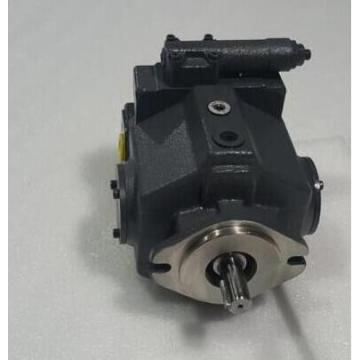 KAWASAKI K3V63DT PISTONS
KAWASAKI K3V63DT PISTONS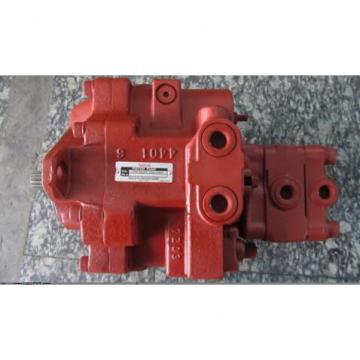 KAWASAKI K3V112DT CYLINDER BLOCK AND R.H. PLATE
KAWASAKI K3V112DT CYLINDER BLOCK AND R.H. PLATE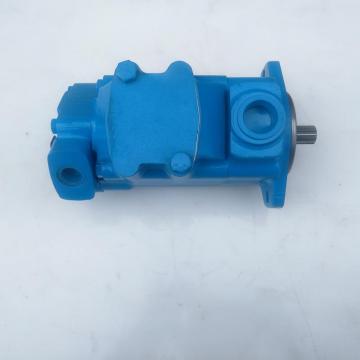 KAWASAKI K3V140DT SHOE PLATE FOR HYDRAULIC OR HYDROSTATIC EXCAVATOR
KAWASAKI K3V140DT SHOE PLATE FOR HYDRAULIC OR HYDROSTATIC EXCAVATOR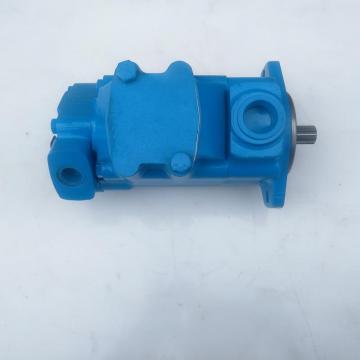 KAWASAKI K3V140DT RIGHT HAND ROTATING GROUP FOR HYDRAULIC EXCAVATOR
KAWASAKI K3V140DT RIGHT HAND ROTATING GROUP FOR HYDRAULIC EXCAVATOR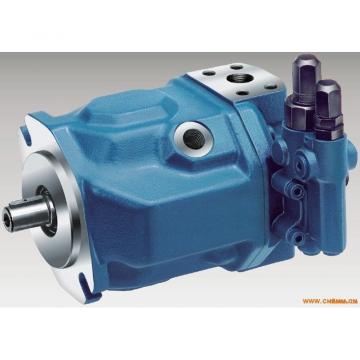 KAWASAKI K3V63DT CYLINDER BLOCK AND L.H. PLATE FOR HYDRAULIC EXCAVATOR
KAWASAKI K3V63DT CYLINDER BLOCK AND L.H. PLATE FOR HYDRAULIC EXCAVATOR